Wellbeing Week
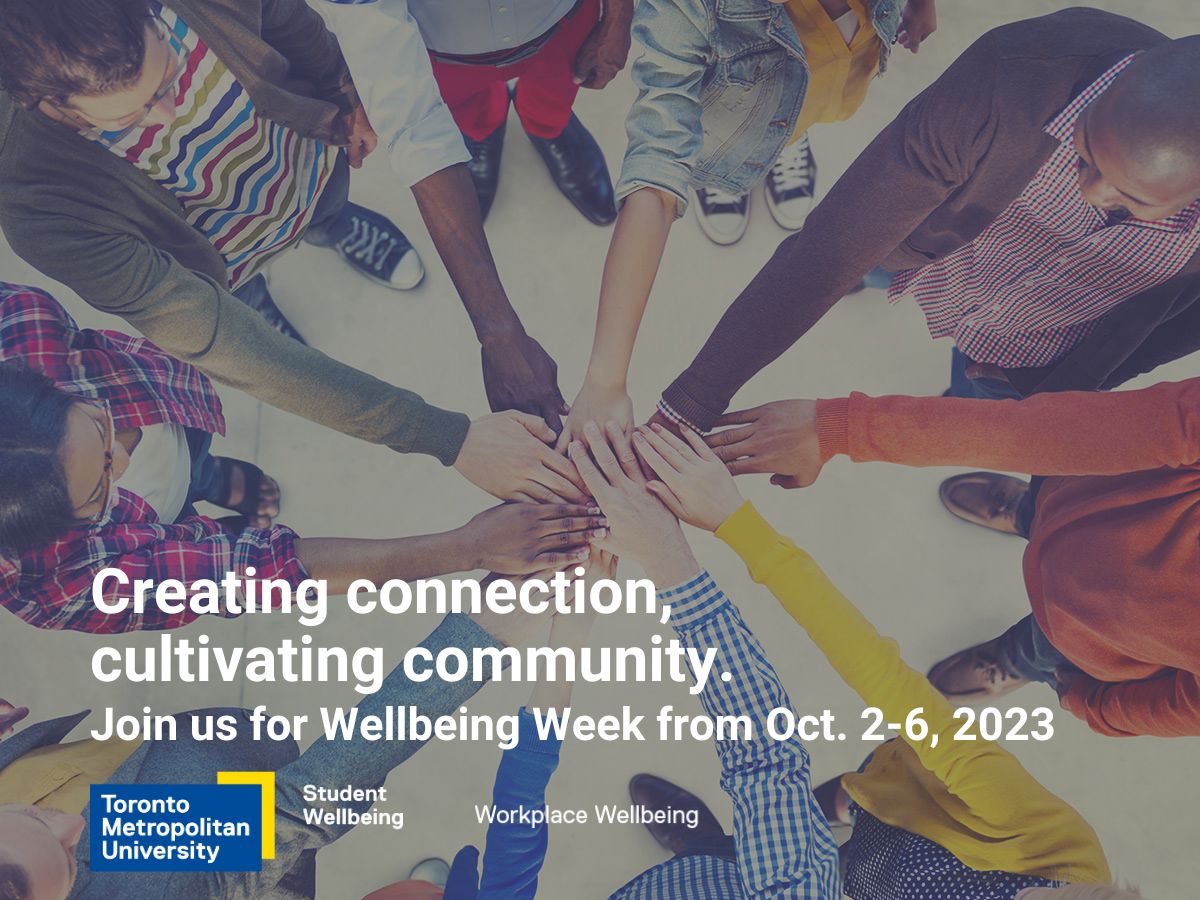
Presented by the Mental Health and Wellbeing Committee, in partnership with Workplace Wellbeing and Student Wellbeing, Wellbeing Week is a university-wide event dedicated to:
- Celebrating, promoting and protecting the mental wellbeing of the diverse community we have at TMU,
- Increasing awareness of resources for all our community members to support their wellbeing, and
- Providing opportunities for community members to engage in conversations related to mental wellbeing on campus
Learn more about this week's events and activities below!
This year's theme is Creating Connection, Cultivating Community
The theme of Wellbeing Week centres on connecting with yourself and others in order to build a sense of community. The reality is that we're living in a time of true disconnection. While technology seems to connect us more than ever, the screens around us disconnect us from nature, from ourselves and from others.
Building strong community connections can have a positive impact on our mental health and wellbeing, and provide a sense of belonging. This year's Wellbeing Week is designed to help students, faculty and staff foster deeper connections within the campus community.
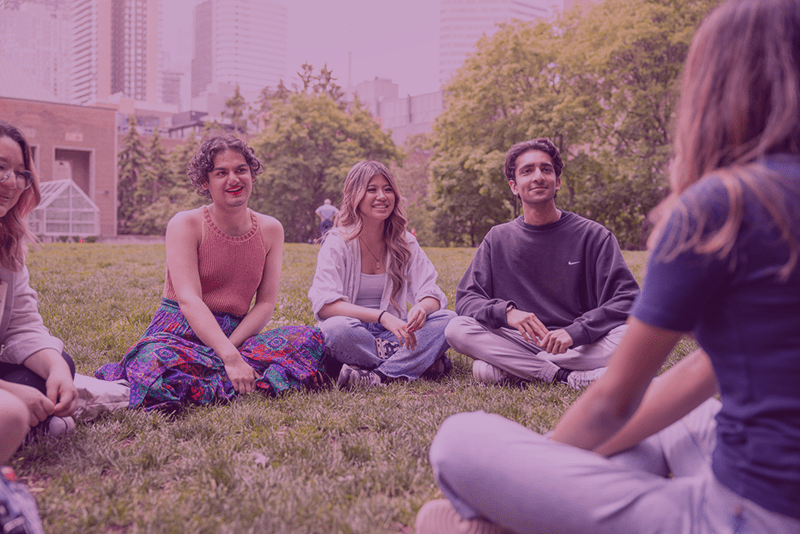
Wellbeing Week Events
Events for everyone
Wellbeing Week Activities and Resources
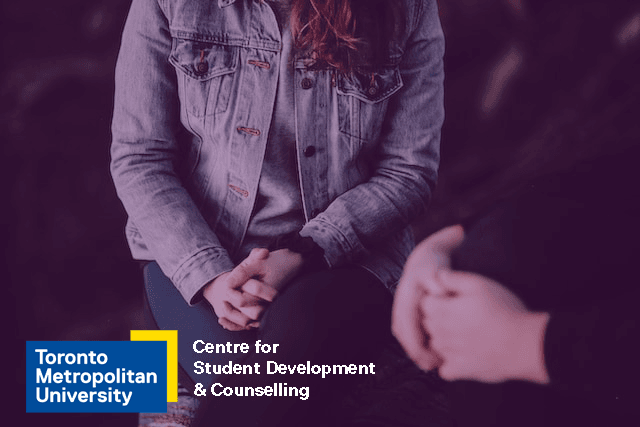
Centre for Student Development and Counselling
Provides counselling services to all TMU full and part-time undergraduate and graduate students who are eligible to proceed in their program and not on academic leave. To book an appointment, students should contact the CSDC front desk at 416-979-5195 or send an email to csdc@torontomu.ca.
Consent Comes First (CCF)
CCF provides free, confidential, trauma-informed, healing-centred support to TMU community members affected by sexual violence and other forms of gender-based violence. We create opportunities for people affected by violence to cultivate safety, healing and leadership on their own terms. Together with campus partners and the broader community, CCF provides education, programming and advocacy to foster a world free from gender-based violence.
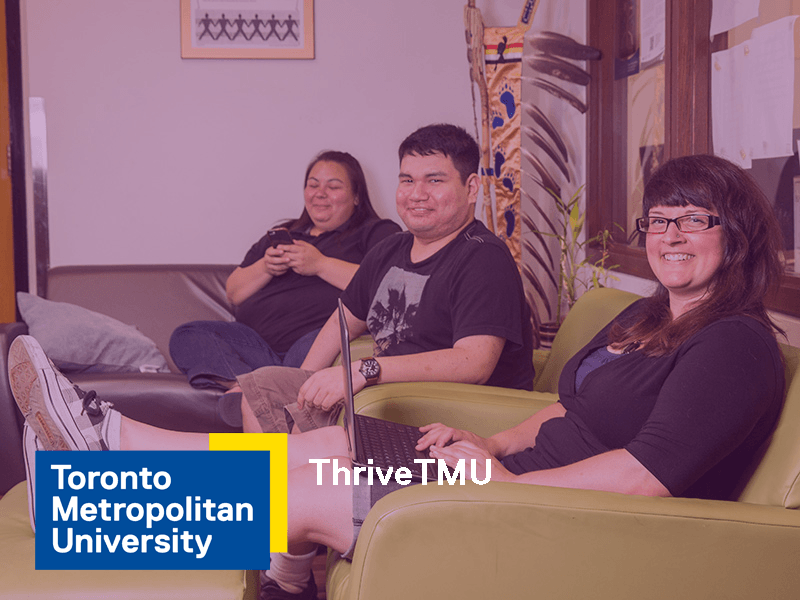
ThriveTMU and Thriving in Action
ThriveTMU provides training and resources to TMU students, faculty and staff in order to teach the skills associated with resilience, well-being and thriving in both an academic and personal context.
Thriving in Action is a ThriveTMU initiative to help struggling students (in their second year and beyond) thrive, academically and personally. Build motivation, optimism, and resilience, along with learning strategy essentials like time management and effective studying.
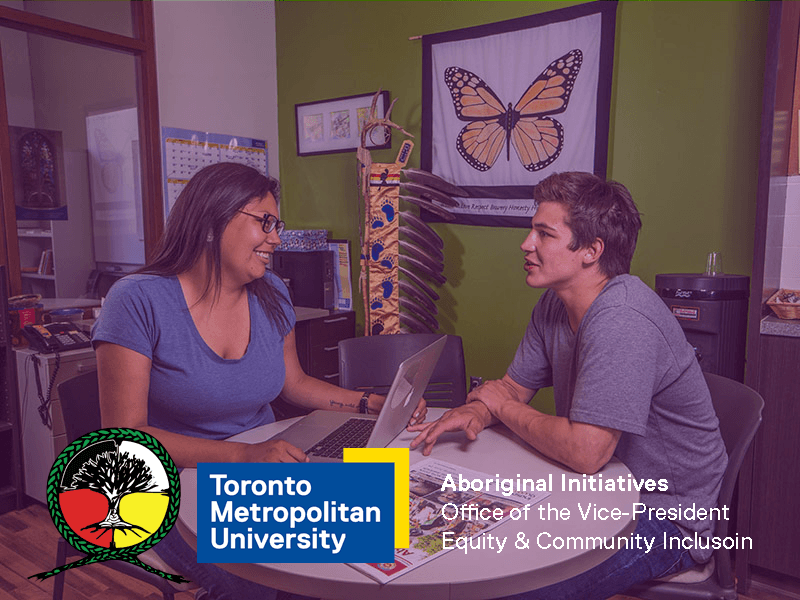
Aboriginal Student Services
Toronto Met Aboriginal Student Services (also known by its acronym RASS) provides a culturally supportive environment to promote academic excellence and serves as a place to balance academic learning with traditional teachings and culture.
Their role is to provide specialized services for First Nations, Inuit and Métis Peoples on campus and to develop a mutually productive relationship between Toronto Met and the Aboriginal community. All Indigenous students have access to the services Aboriginal Student Services provides, such as academic advising and referral, bursary and scholarship information, writing support, tutor assistance, financial planning and more.
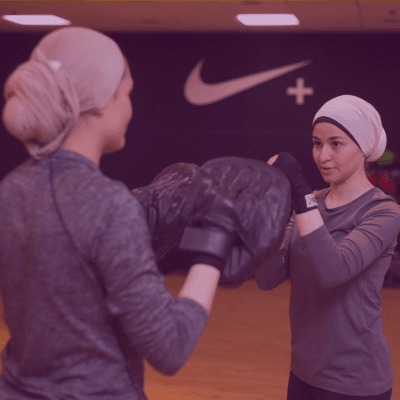
Athletics & Recreation
TMU Athletics & Recreation provides regular physical activity programs for all students, faculty and staff! From traditional sport clubs and intramural teams to women’s only programs and mind-body activities, they've got something for everyone.
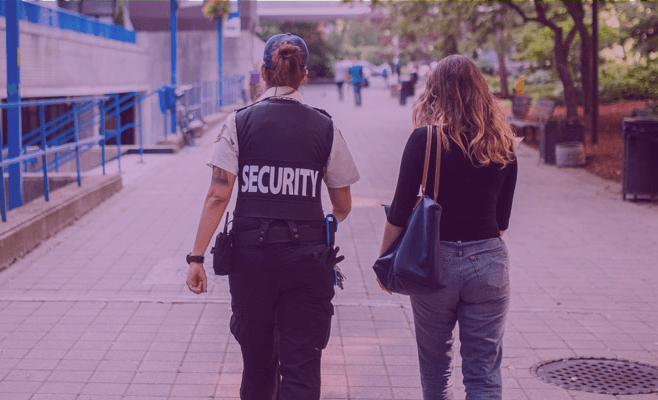
WalkSafe Program
WalkSafe is a free service that pairs you with a uniformed security crew member to escort you to various locations on campus, including the subway and nearby parking lots. This service is available to all TMU community members—including visitors—24 hours a day, 7 days a week.
- Black Youth Helpline (external link) - More than a “Helpline” and serving all youth, our “Helpline” serves as the point of contact for calls to our professional services from youth, families, school districts and a variety of youth serving stakeholders.
- Good2Talk (external link) - is a 24/7 line for post-secondary students where they can speak with a trained counsellor by phone at any time by dialing 1-866-925-5454.
- Hope For Wellness (external link) - The Hope for Wellness Help Line offers immediate mental health counselling and crisis intervention to all Indigenous peoples across Canada. If asked, counsellors can also work with you to find other wellness supports that are available near you. Phone and chat counselling is available in English and French.
- Jack.org (external link) - Canada’s only charity training that empowers young leaders to revolutionize mental health in every province and territory. They have created a COVID-19 Youth Mental Health Resource Hub on their website to support students and their peers through challenging times.
- KeepmeSAFE - Provides 24/7 mental health counselling service through telephone and mobile chat. This service can be provided in over 60 languages and TMU students outside Canada. Students can access the services by Downloading the My SSP app on their phone’s app store: Apple Store (external link) or Google Play (external link)
- Naseeha Youth Helpline (external link) - A confidential helpline for young Muslims to receive immediate, anonymous, and confidential support. Call 1-866-627-3342 (7 days a week, 12 p.m. – 9 p.m. EST) or text 1-866-627-3342 (Monday to Friday, 12 p.m. – 9 p.m. EST).
- Talk4Healing (external link) - Is 24/7 peer support for Indigenous women. Individuals have the option of talk, text and chat service (available in 14 languages) for a safe space to connect.
- The 519 (external link) - Provides phone or email check-in for the 2SLGBTQ+ community.
- Togetherall (external link) - is a 24/7 online peer-to-peer support community for mental health.
- Trans Lifeline's Hotline (external link) - A peer support phone service for trans and questioning people
- YouthLine (external link) - Offers offers confidential and non-judgemental peer support through our telephone, text and chat services to 2SLGBTQ+ youth. Individuals can get in touch with a peer support volunteer from Sunday to Friday, 4:00 PM to 9:30 PM.
- Gerstein Crisis Centre (external link) - A 24-hour community-based crisis service for adults 16+ in the City of Toronto who are currently in crisis. 416-929-5200
- Distress Centre of Toronto (external link) - Provides telephone support to individuals in the community who are at risk and their most vulnerable. 416-408-4357
- Crisis Services Canada (external link) - Provides 24/7 support to people in Canada. Call 1-800-456-4566 or text 45645
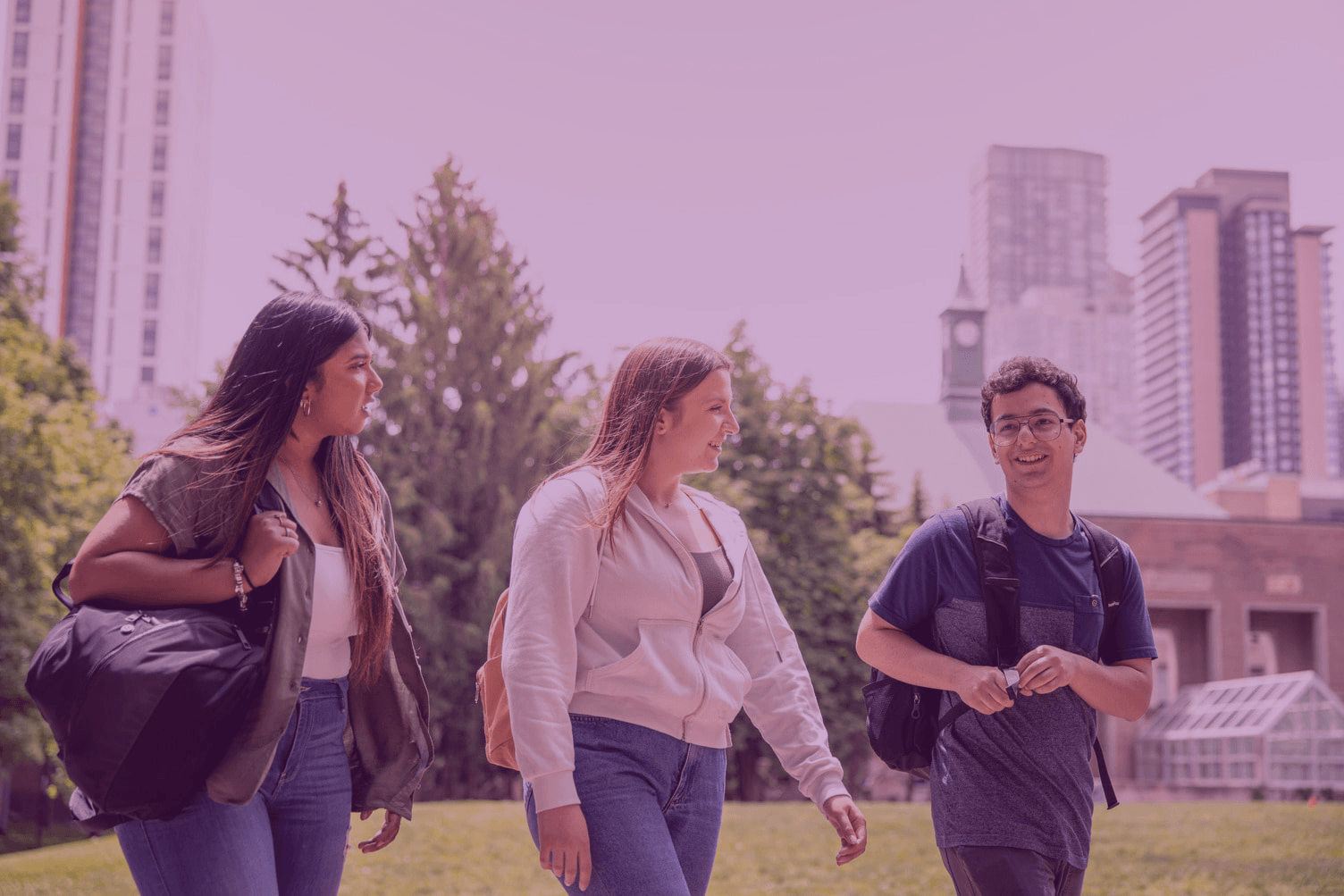
Movement Breaks
Participate in movement breaks all week, any time you can!
Did you know that doing light physical activity while you learn has been shown to improve creativity, recall, attention and understanding? Movement Breaks provide individuals a chance to recharge the mind and body during quick moments in between classes, meetings, study sessions, or whatever life brings. Choose a break time to find an activity that works for you!
Podcast: Failure, Creativity, and Wellbeing in the Classroom with Dr. Krystal Nunes and Dr. Dave Colangelo
In recognition of Wellbeing Week at TMU, two professors discuss their research on how educators can be purposeful about fostering student wellbeing in the classroom on Podagogies: A Learning and Teaching Podcast. Dr. Krystal Nunes is an Assistant Professor in the Department of Chemistry and Biology who is studying how students can develop the skill of resilience and learn to appreciate the importance of failure in the sciences. Dr. Dave Colangelo is an Assistant Professor of Digital Creation and Communication in the School of Professional Communication. His work focuses on the connection between creative assessment strategies and mental health. Both CELT Learning and Teaching Grant recipients, Dr. Nunes and Dr. Colangelo reflect on their research into the impacts of assessment choices and facilitation practices on student mental health and wellbeing.
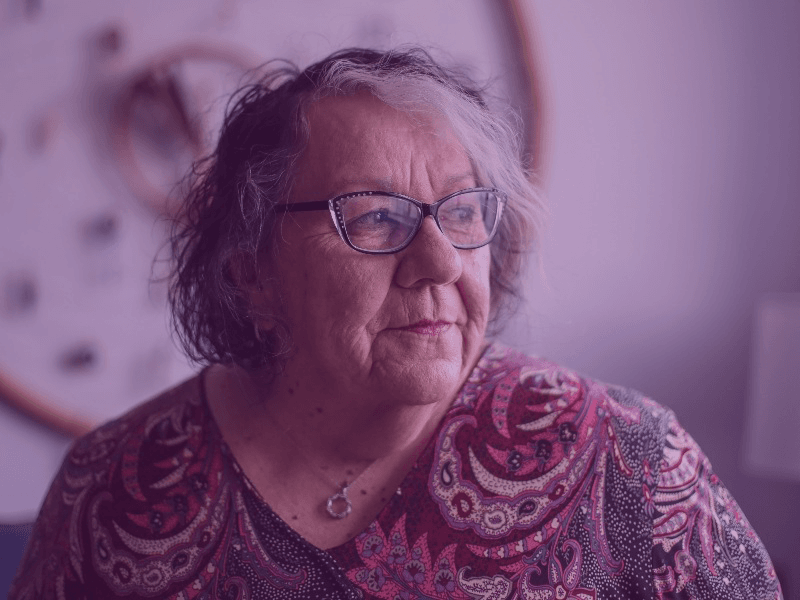
Indigenous Teachings
Joanne Okimawiniew Dallaire, elder (Key Shay Hayo) and senior advisor, Indigenous Relations and Reconciliation, has created a number of teaching and community message videos that touch upon a variety of wellbeing subjects.
Selected teachings:
- Accepting our mental health needs and finding resilience
- Celebrating Life
- Spirit Moon (all about self-care)

Apathy to Empathy video series
The Apathy to Empathy Curriculum Project is an interdisciplinary curriculum pilot project that took place in Fall 2021. The pilot was offered in partnership with the Office of Social Innovation, Centre for Excellence in Learning & Teaching and Urban Water Research Centre. The program was designed to provide a cross-faculty and collaborative opportunity for students and faculty to better understand how a social innovation for social justice lens could be activated to address multiple facets of the First Nations water crisis.
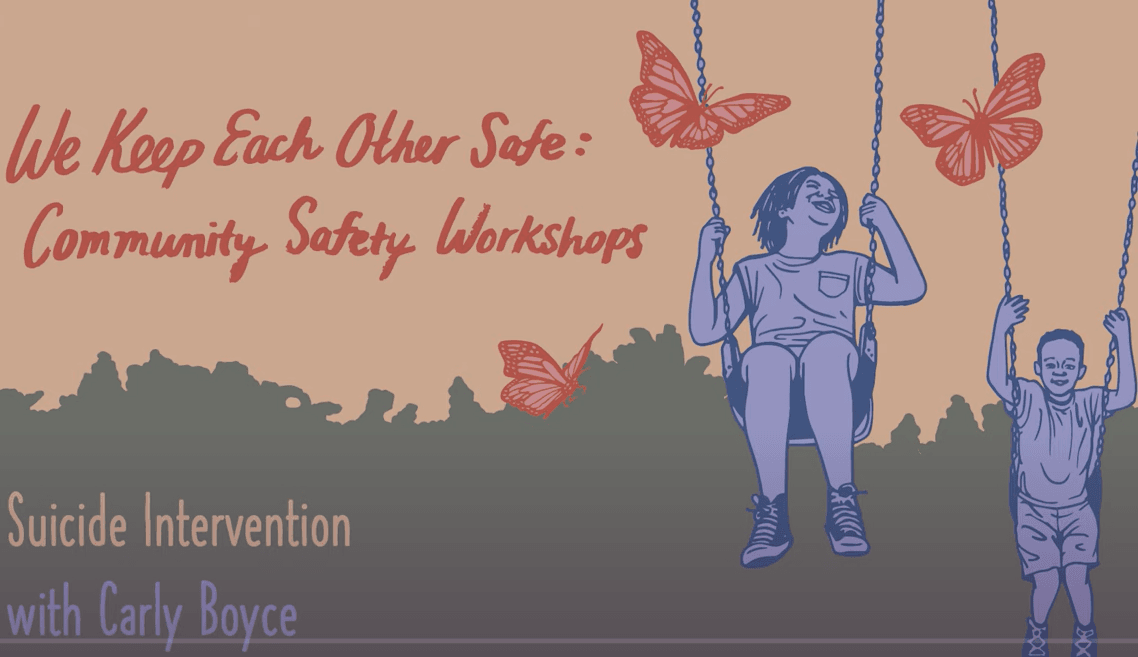
We Keep Each Other Safe: Suicide Intervention
A resource with peer and community-based strategies for supporting folks in our lives who might be suicidal, as well as examining the beliefs and structures that keep suicide conversations under wraps.
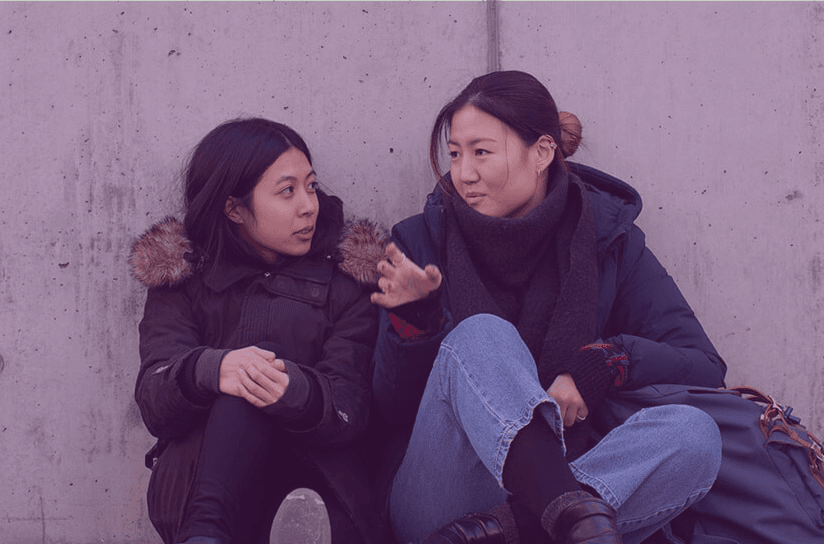
Jack.org Be There Series
Just talking about mental health isn’t enough. We need the knowledge, skills and confidence to step up and be there for one another. The Jack.org Be There series focuses on 5 "Golden Rules" - a simple but actionable framework on how to support someone struggling with their mental health. Every situation is different, but you can think of the 5 Golden Rules as a general guide to being there for someone, no matter the circumstances.
Past Wellbeing Week activities
October 3-7, 2022 marked the inaugural Wellbeing Week at TMU!
Theme: ‘Flourishing’, both as individuals and as a community. To flourish, emotional, psychological, and social wellbeing are essential. We consider five key factors to promote flourishing: playing, learning, connecting, interacting, and helping. Dedicating a day to each of these factors will allow opportunities to dive deeper into understanding and engagement with the concepts.
In order to flourish, we also must address all aspects of wellbeing which is taught in Indigenous teachings of the four directions: physical, mind, emotion and spirit. Ensuring that each of these are explored throughout the week allows for a more holistic approach to discussing and engaging with wellbeing topics.
